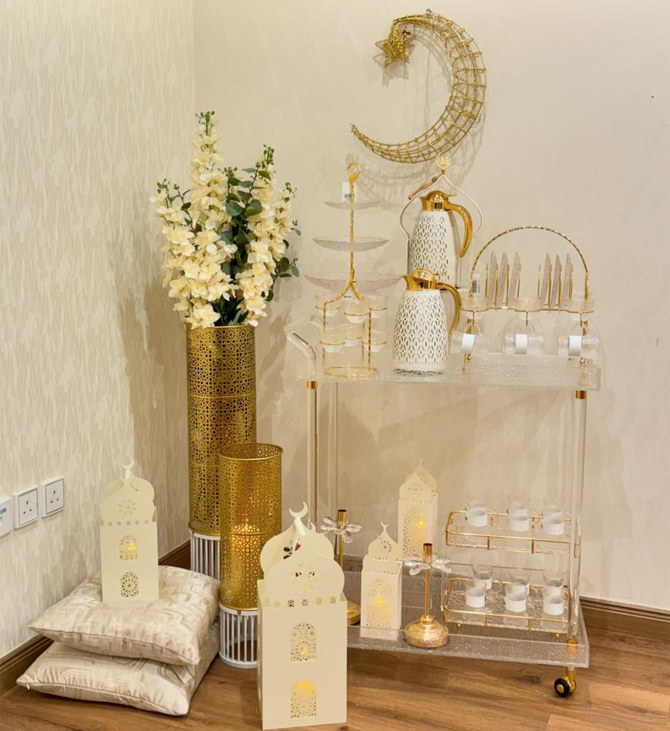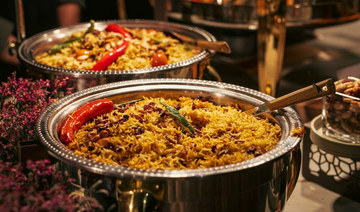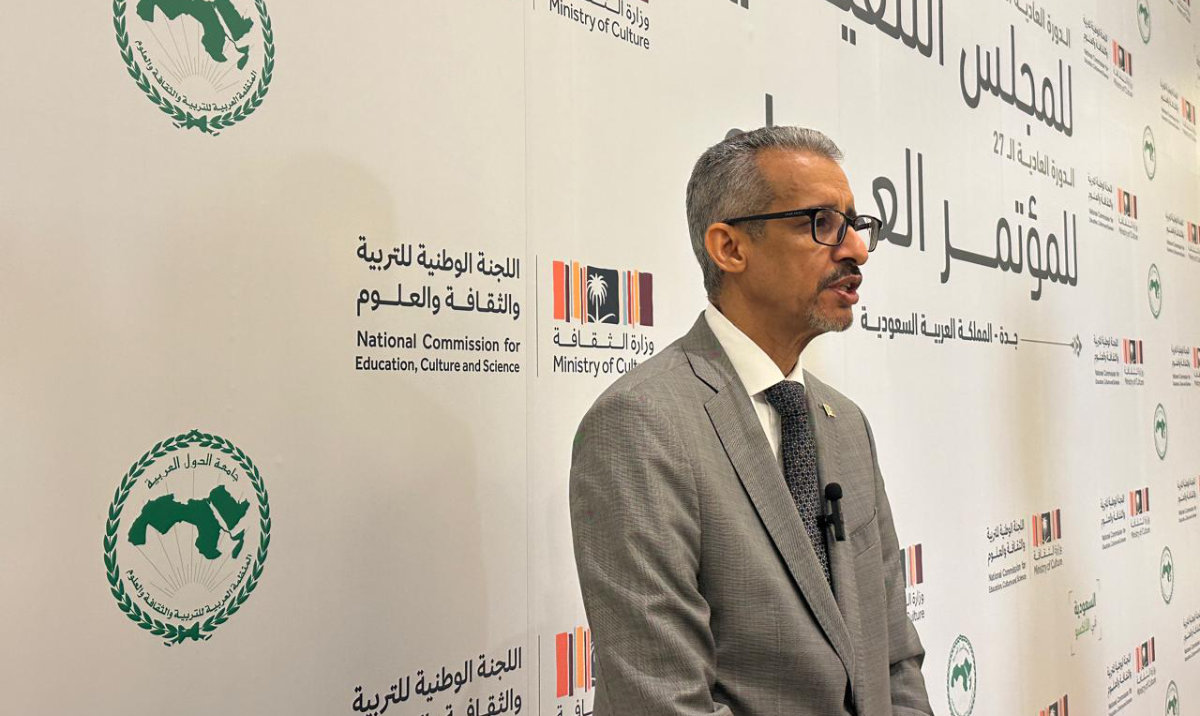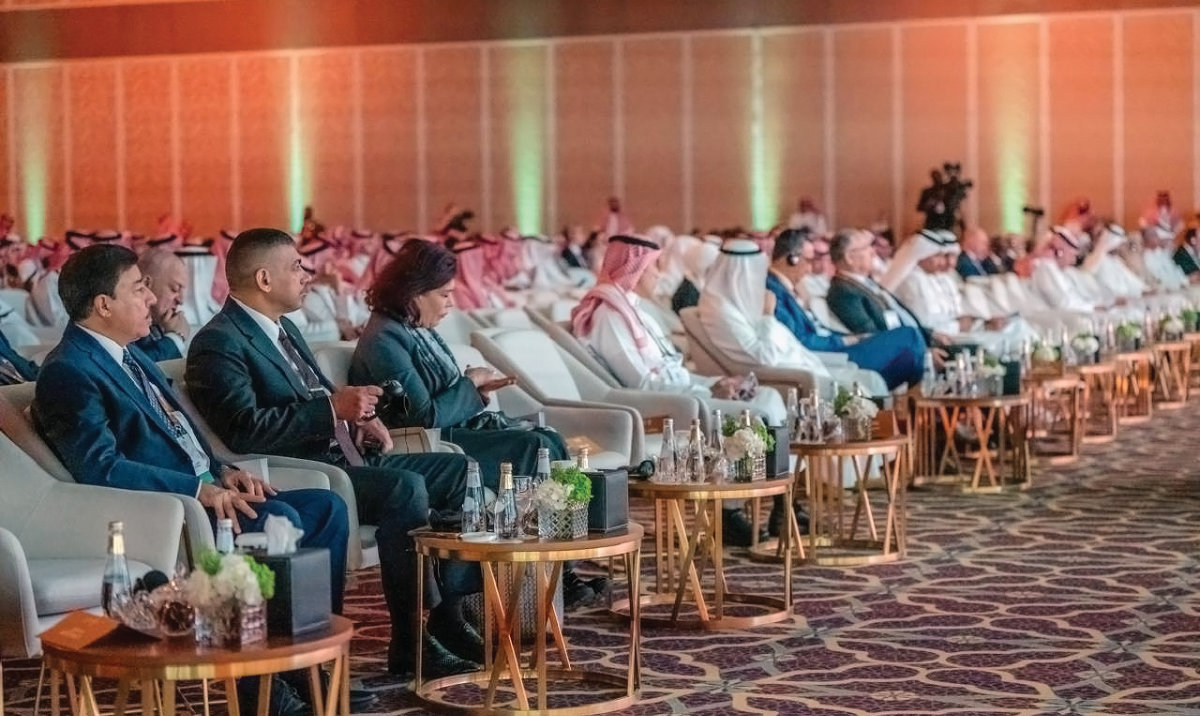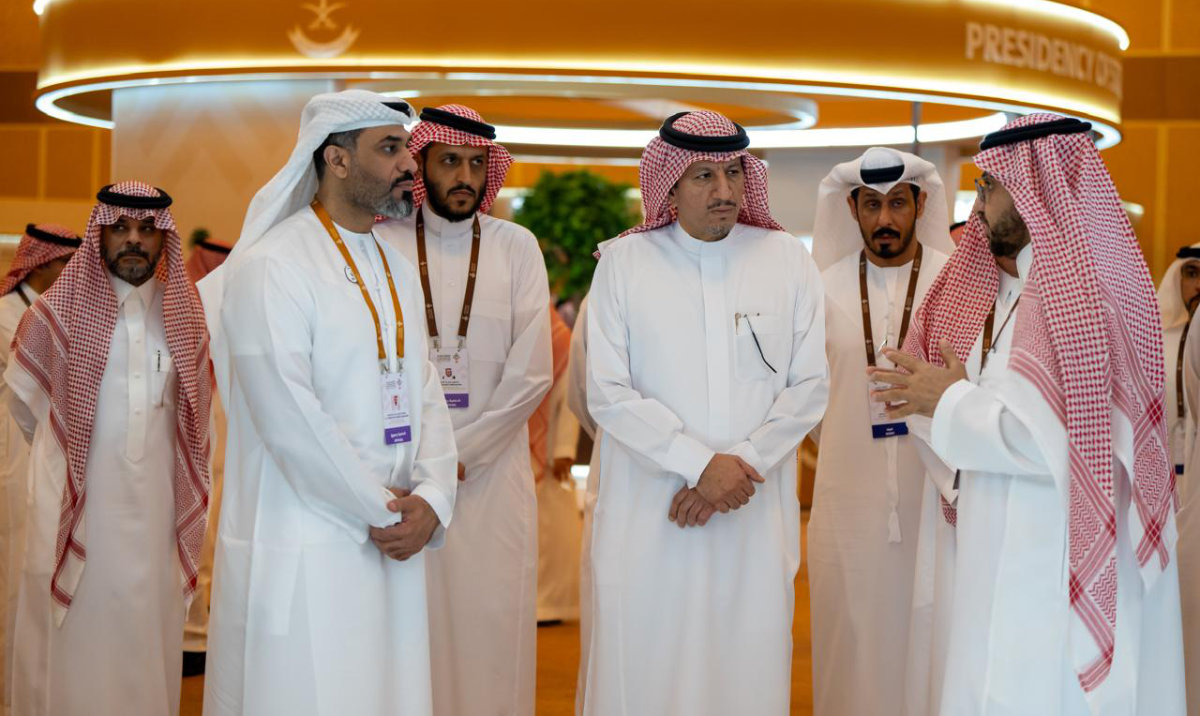JEDDAH: During Ramadan, households across the Kingdom often use all types of decorations to create a warm and inviting atmosphere that captures the essence of the holy month.
Jeddah residents looking to purchase Ramadan and Eid decorations can find a wide variety of options at local shops including Al-Hadaya Center, Abyat, Ya Balash, Al-Bashawat, Bravo, and Day by Day KSA. These shops offer a diverse range of lanterns, string lights, and ornate tableware to enhance the festive spirit of Ramadan.
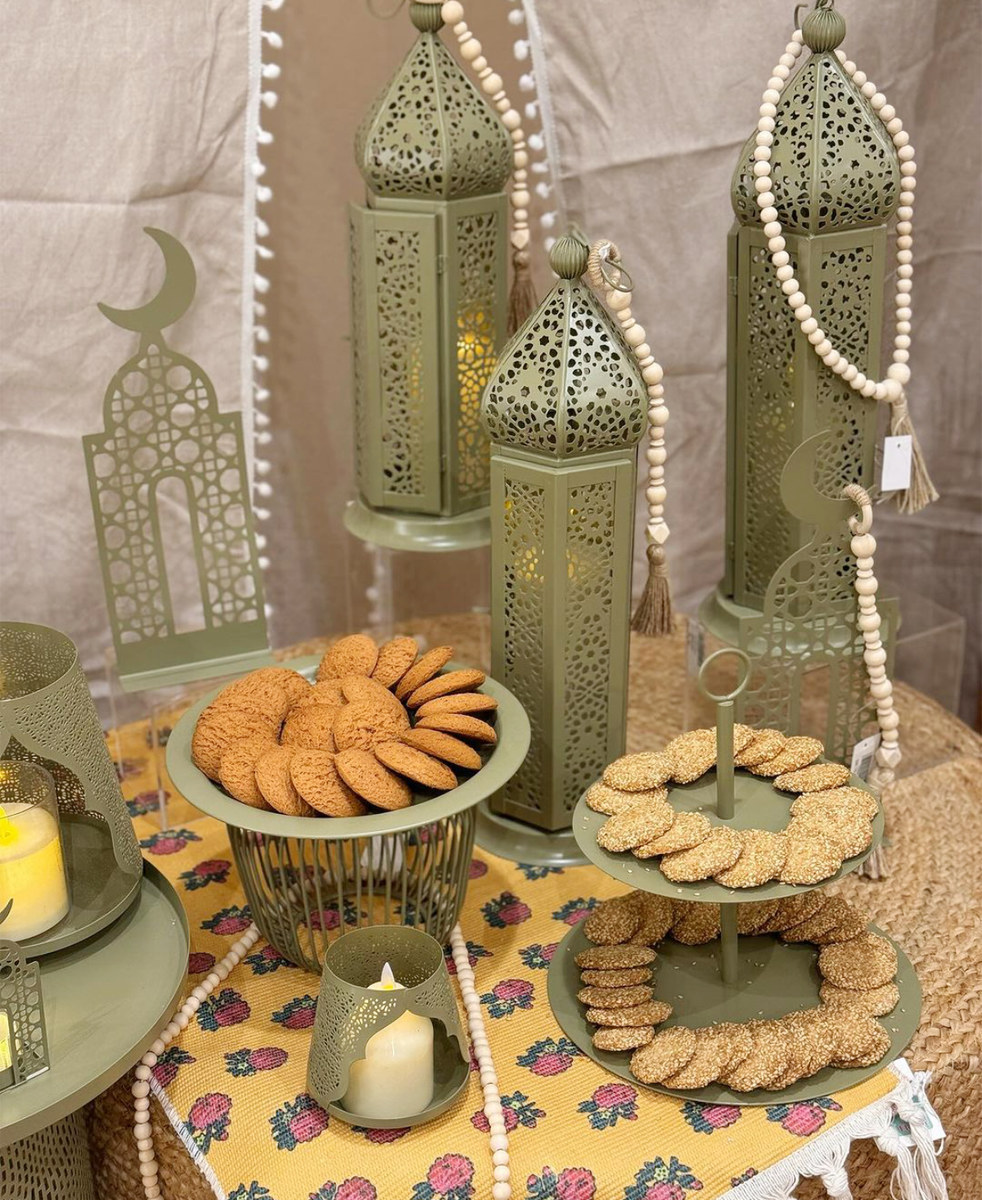
Jeddah residents looking for Ramadan and Eid decorations can find a wide variety of options at Al-Hadaya Center and Ya Balash among other local stores. (AN photo/Supplied)
Sufyan Raya, a senior digital marketing specialist at Al-Hadaya Center, told Arab News that 30 percent of the store’s inventory is dedicated to a diverse collection of Ramadan decorations. Additionally, 35 percent of the stock consists of related utensils.
“The most popular lanterns this year were hand-painted wooden lanterns imported from India and copper lanterns from Egypt. Al-Hadaya Center also featured both table and hanging lanterns, which experienced high demand this season.”
HIGHLIGHTS
• Khayamiya patterns are derived from the Arabic word khayma, meaning tent, and are a popular motif during Ramadan.
• Hanging string or fairy lights around your living room and dining area can create a warm and inviting glow.
He added: “In preparation for the awaited Ramadan season, we supplied 66 containers from various countries like India, China, and Egypt. As for the main warehouse and the stores’ storage, all the inventory was depleted by 100 percent on the eve of Ramadan.”
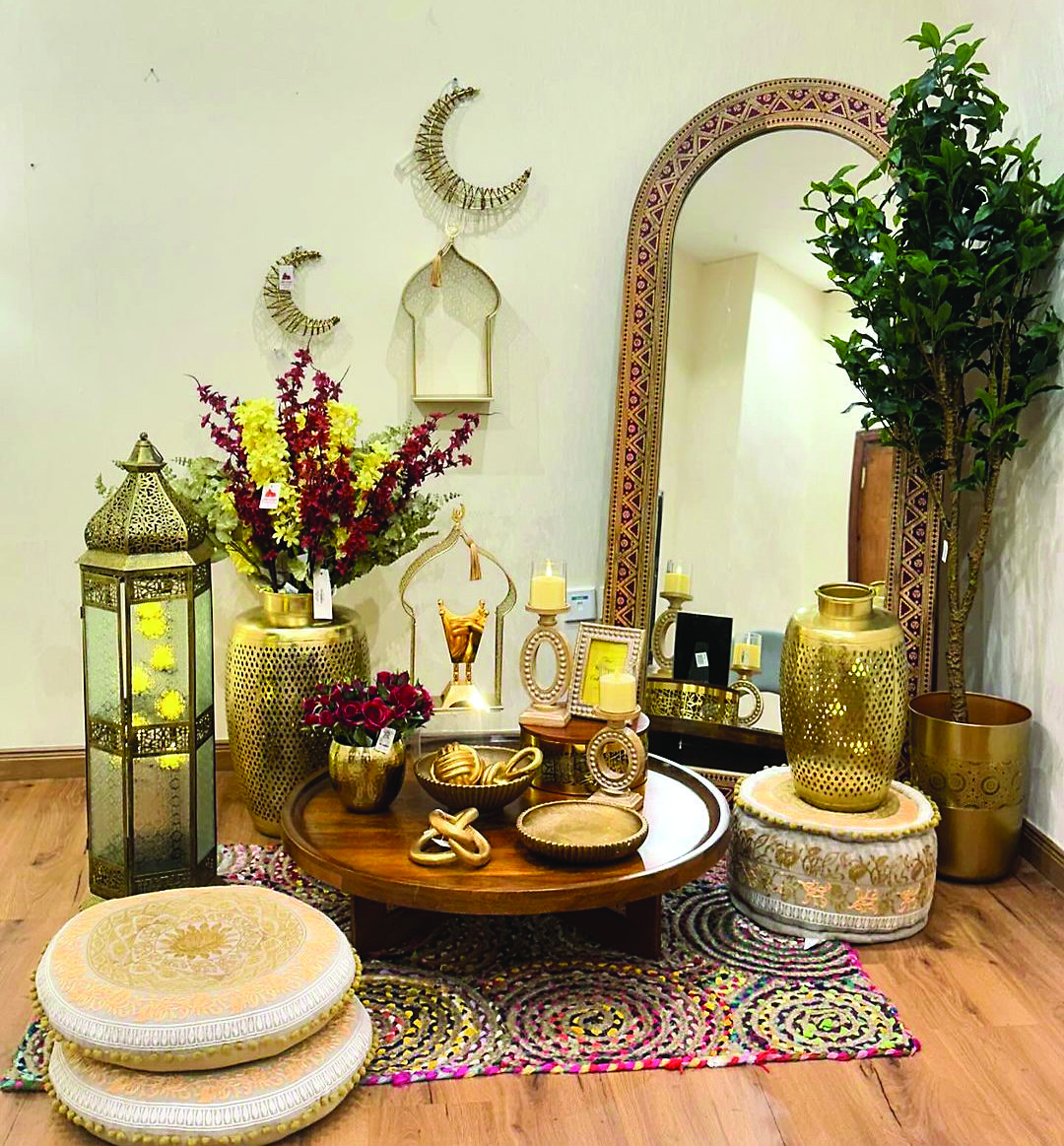
Jeddah residents looking for Ramadan and Eid decorations can find a wide variety of options at Al-Hadaya Center and Ya Balash among other local stores. (AN photo/Supplied)
Dima Nabulsi, co-founder of catering and event planning firm Sisters and Co., told Arab News that every year is the same, yet special: “In Ramadan specifically there are things that never change … experience of Ramadan, the gatherings, the love given and received.”
“I love making sure my house is cozied up for the season but to me, simplicity is the key. When I do go to decorate for the month, you’ll find different centerpieces everywhere but bringing along with them the feel of peace, and this exactly is what I aim for in Ramadan, peace and calmness with a light heart. The same goes for my clients in our packages.”

Jeddah residents looking for Ramadan and Eid decorations can find a wide variety of options at Al-Hadaya Center and Ya Balash among other local stores. (AN photo/Supplied)
Every year, Sisters’ signature date balls are a memorable treat. This year, they also offer classic acrylic and wooden boxes, along with customized and traditional pottery ones with Ramadan goodies.
“In my personal opinion, when it comes to Ramadan’s trends, this year’s colors were a mix of blues, whites, and gold. The theme of having minimal small lanterns or lights is booming, around with the crescent being the main centerpiece as it is the holy month. And while every year has the same taste, there’s always a new twist to it that focuses on elegance,” Nabulsi said.
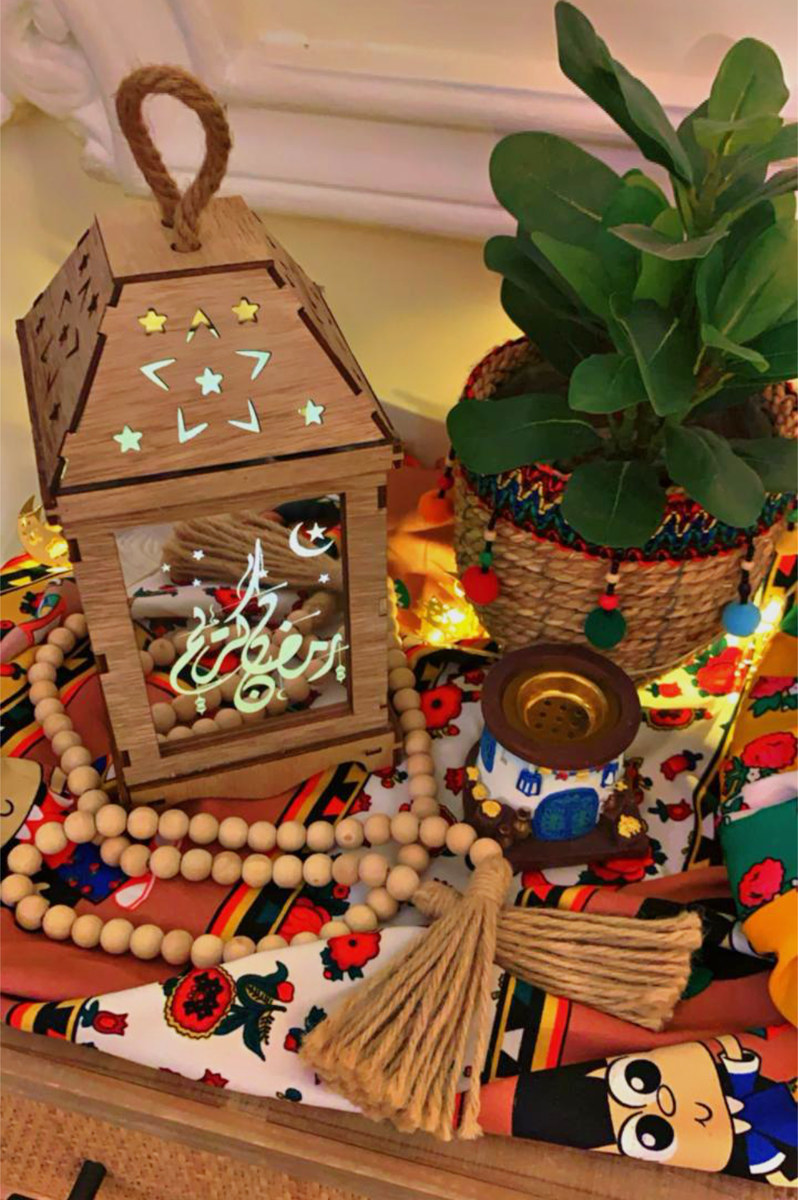
Jeddah residents looking for Ramadan and Eid decorations can find a wide variety of options at Al-Hadaya Center and Ya Balash among other local stores. (AN photo/Supplied)
Nema Sabea is a mother of five children who gives meticulous attention to home decoration every Ramadan season. “I’ve adorned my home with diverse decorations, giving each room a unique design. The dining room showcases a golden motif for the table, while the entrance boasts a bohemian style in black. The living room is enhanced with exquisite lighting and traditional wicker and straw decor.”
She makes sure to involve her children in the decoration process as it brings them “immense joy and happiness that’s evident in their eyes.”
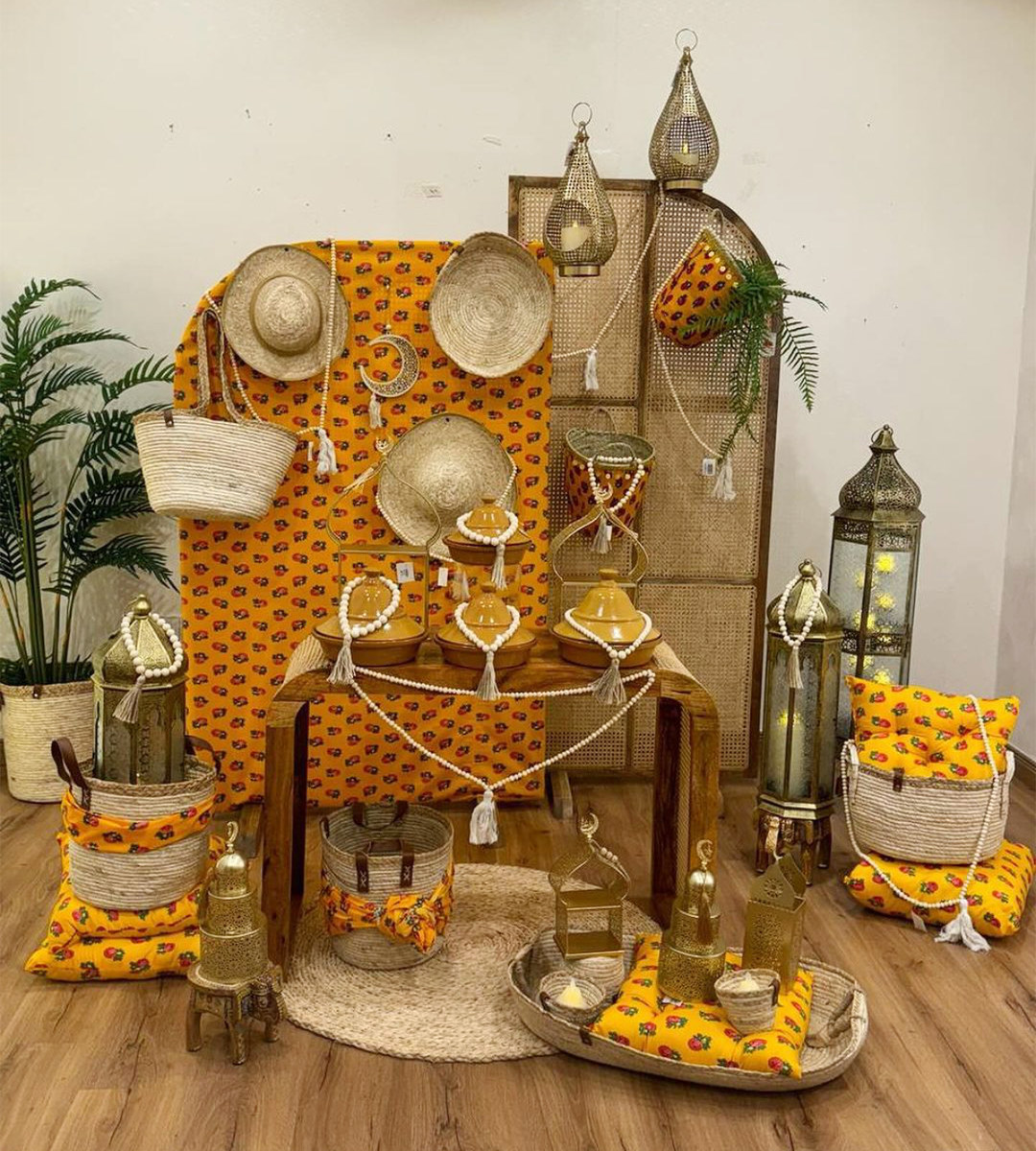
Jeddah residents looking for Ramadan and Eid decorations can find a wide variety of options at Al-Hadaya Center and Ya Balash among other local stores. (AN photo/Supplied)
Preparing the kitchen and new dining sets for Ramadan is crucial in fostering a warm home atmosphere. “I’ve arranged the kitchen and established a prayer area, complete with an incense burner, Qur’an, and prayer beads, highlighting the significance of worship during this holy month and also to motivate my children for Ramadan.”
She added that she purchased new jalabiyas or kaftan dresses for her daughters from the 2024 Consmix National and Consumer Industries Exhibition in Jeddah last month.
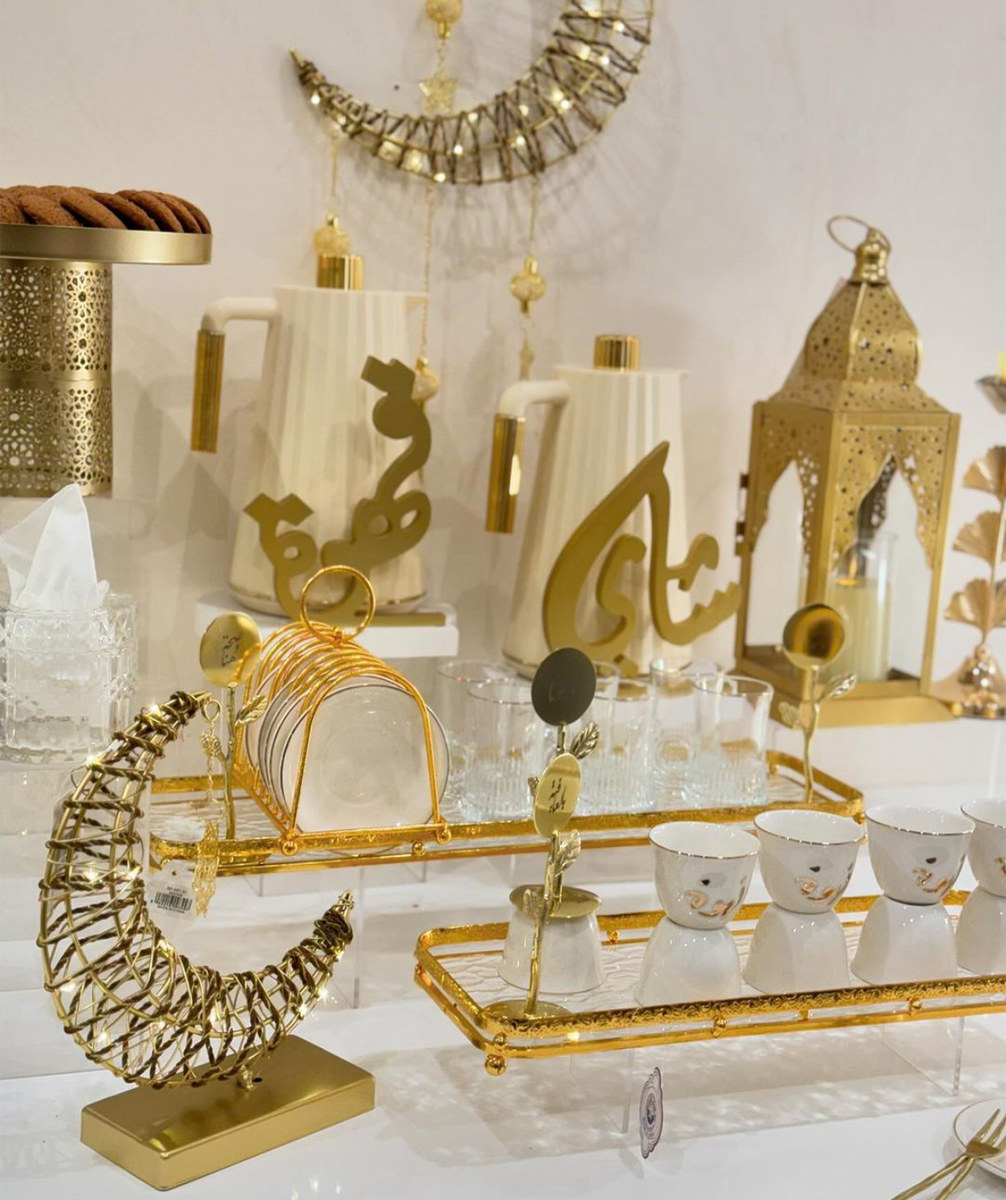
Jeddah residents looking for Ramadan and Eid decorations can find a wide variety of options at Al-Hadaya Center and Ya Balash among other local stores. (AN photo/Supplied)
During a tour of the 2024 exhibition, Arab News interviewed Khider Ismail, renowned for operating one of Cairo’s leading lantern stalls in the historic Al-Darb Al-Ahmar area. This annual exhibition, held during Sha’ban and Ramadan, draws visitors for its festive atmosphere and diverse array of local and Arab culinary brand offerings.
This year marked a decade of participation for Ismail and his father, who had two stalls brimming with the latest Ramadan decor trends from Egypt. Their collection has become a highlight for festival goers. “This is our 10th consecutive year, including pre-pandemic times,” Ismail told Arab News. “Our visitors anticipate our new selections each year, and we’re committed to refreshing our offerings.”
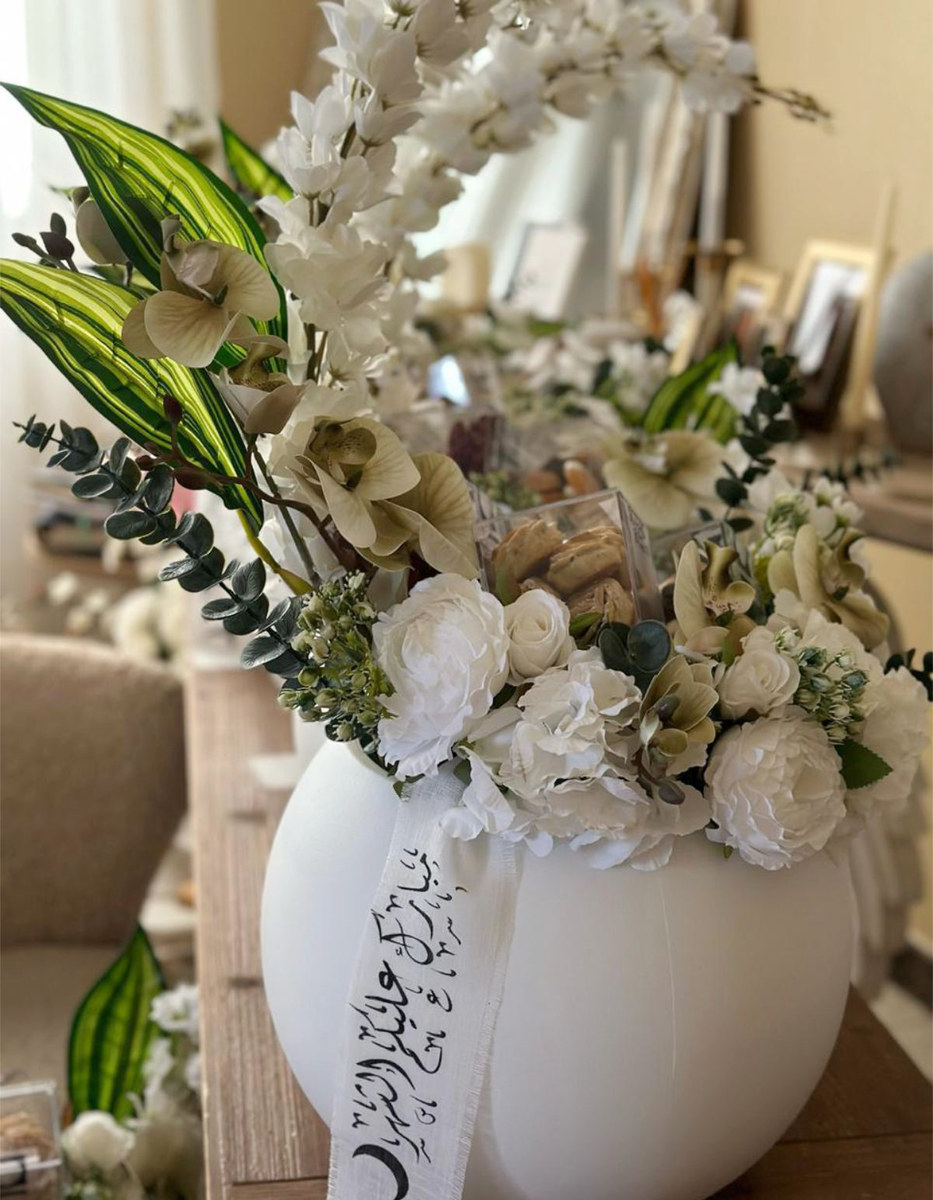
Jeddah residents looking for Ramadan and Eid decorations can find a wide variety of options at Al-Hadaya Center and Ya Balash among other local stores. (AN photo/Supplied)
The lanterns on offer range from under one dollar to $267. There are over 200 types, ranging in size from 5 centimeters to 2 meters.
Additionally, Ismail’s stalls feature an array of characters from the “Fananees” TV series shown on MBC TV during Ramadan. These characters have become as beloved and iconic as classic Egyptian Ramadan figures like Fatouta, Bakkar, Boogy, and Tamtam.
“Surprisingly, this year’s bestsellers included linen tablecloths with updated khayamiya patterns in gray and pink hues and hand-embroidered tablecloths in various Ramadan themes. Small mesaharati drums for children were also among the most sought-after items, reflecting the enduring charm and appeal of Ramadan traditions,” he added.
Khayamiya patterns
Khayamiya patterns are derived from the Arabic word khayma, meaning tent. It is a decorative applique textile bearing distinct geometric and curvilinear arabesque patterns and has historically been used to decorate tents across the Middle East. It is believed to have originated in Egypt and has since made its way across the region. It has become widely popular in recent years, taking Saudi Arabia’s market by storm, and is now used for tablecloths, cushions, accessories, dresses, prints, and more.
Mesaharati
The mesaharati is a Ramadan-only phenomenon that is commonplace in Egypt and Levant neighborhoods. The mesaharati is a person dressed in traditional attire, who goes around shouting and banging on a drum to wake people up for sahoor.
It is an honored tradition that continues to this day.
Create a festive atmosphere at home
Transforming your home into a festive paradise for Ramadan does not have to be complicated, and it is never too late to put up lights and spruce up your space. Here are some simple ideas to set the stage for a memorable end to the month of reflection and celebration:
1. Create a Ramadan-inspired table setting with elegant dinnerware, gold-trimmed glasses, and embroidered napkins. Add a centerpiece of fresh flowers or candles to elevate the ambiance.
2. Hang string or fairy lights around your living room and dining area to create a warm and inviting glow. Mix and match different sizes and shapes for a whimsical touch.
3. Incorporate traditional elements such as dates, Arabic coffee sets, and incense burners to infuse your home with the scents and flavors of the holy month.



